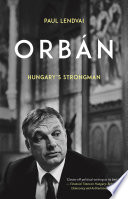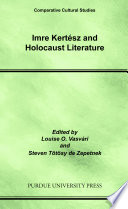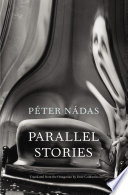Expand your literary horizons with engaging Hungarian literature. Explore the best Hungarian authors and writers who’ve shaped world literature through their powerful storytelling.
Hungary boasts a rich literary heritage that reflects the nation’s complex history of struggle, resilience, and transformation. Hungarian literature often explores themes of faith, identity, and survival, with many works chronicling the tremendous upheavals of the 19th and 20th centuries. From Holocaust memoirs to revolutionary poetry, these authors have created some of the most powerful and moving literature in European history.
Whether you’re discovering Hungarian literature for the first time or deepening your appreciation for Eastern European voices, these twelve authors represent the pinnacle of Hungarian literary achievement. Their works offer profound insights into Hungarian culture while addressing universal human experiences that resonate across cultures and generations.
For more recommendations, you might also enjoy exploring authors like Harlan Coben, authors like Gillian Flynn, best detective novel series.
Popular Hungarian Authors To Read Today
1. Sandor Petofi, 1823 - 1849
Widely regarded as Hungary’s greatest poet, Sandor Petofi holds the title of national poet and remains a towering figure in Hungarian literature. His revolutionary spirit and lyrical genius made him an icon of Hungarian independence and literary excellence.
Petofi’s “National Song” became the rallying cry of the 1848 Hungarian Revolution against Habsburg rule. His passionate verses inspired a generation of freedom fighters, and his tragic death during the revolution’s final battles only enhanced his legendary status. Today, countless streets, schools, bridges, and public squares across Hungary bear his name.
His poetry combines romantic idealism with fierce patriotism, creating works that are both deeply personal and powerfully political. Petofi’s influence extends far beyond literature—he’s considered one of the founding fathers of modern Hungarian identity.
Essential Reading: Start with his “National Song” and explore his collected poems to understand the foundation of Hungarian literary nationalism.
2. Imre Kertesz, 1929 - 2016
The only Hungarian writer to receive the Nobel Prize for Literature (2002), Imre Kertesz created some of the most important Holocaust literature ever written. His semi-autobiographical works transformed personal trauma into universal statements about human survival and dignity.
Kertesz spent his teenage years in Buchenwald and Auschwitz concentration camps, experiences that profoundly shaped his literary voice. His masterwork, Fatelessness, doesn’t just recount the horrors of the camps—it explores how trauma shapes identity and how individuals maintain humanity in the face of systematic dehumanization.
What sets Kertesz apart is his unflinching examination of Hungary’s complicity in the Holocaust and his refusal to romanticize suffering. His work remains essential reading for understanding both Hungarian history and the broader human capacity for both cruelty and resilience.
Essential Reading: Fatelessness is his masterpiece, but also explore Kaddish for an Unborn Child for his continued exploration of trauma and memory.
3. Peter Esterhazy, 1950 - 2016
One of the most celebrated Hungarian writers of the late 20th century, Peter Esterhazy masterfully wove personal and national history into complex, multilayered narratives. Despite facing controversy from some Hungarian leaders, he remained one of the country’s most beloved literary figures.
Esterhazy’s writing style combines historical documentation with postmodern experimentation, creating works that are both accessible and intellectually challenging. His most acclaimed novel, Celestial Harmonies, traces his aristocratic family’s history alongside Hungary’s tumultuous past, offering readers an intimate lens through which to understand Hungarian identity.
His work particularly resonates in 2025 as readers seek to understand how personal stories intersect with larger historical forces. Esterhazy’s exploration of family secrets, political oppression, and cultural memory feels especially relevant in our current era of historical reckoning.
Essential Reading: Celestial Harmonies provides the perfect introduction to his style and themes.
4. Laszlo Krasznahorkai, Born 1954
Known for his hypnotic prose style and apocalyptic vision, Laszlo Krasznahorkai has developed a cult following among literary enthusiasts worldwide. His 2015 Man Booker International Prize win brought international attention to his unique voice and experimental approach to narrative.
Krasznahorkai’s writing is characterized by extraordinarily long sentences that create an almost trance-like reading experience. His novels often feature isolated characters in decaying rural settings, exploring themes of existential despair and cultural decline. Critics have dubbed him “the Leviathan of Hungary” for his massive, overwhelming literary presence.
In today’s literary landscape, Krasznahorkai’s work feels prophetic, capturing the sense of societal breakdown and environmental crisis that defines much contemporary anxiety. His influence on younger Hungarian and international writers continues to grow.
Essential Reading: Satantango is his most famous work, also adapted into an acclaimed film. His more recent Baron Wenckheim’s Homecoming shows his continued evolution as a writer.
5. Peter Nadas, Born 1942
Peter Nadas stands as one of Hungary’s most ambitious and intellectually rigorous contemporary writers. His sprawling novels, often compared to the great Russian masters like Tolstoy and Dostoyevsky, dive deep into European history and psychology with unprecedented depth and complexity.
Nadas excels at weaving philosophical and moral questions into compelling narratives that span generations and political systems. His work particularly examines how Eastern Europe’s shifting political landscape affects individual lives and relationships. His psychological insight and historical scope make him essential reading for understanding modern European literature.
His writing has gained renewed relevance in 2025 as readers grapple with questions about European identity, the legacy of communism, and the ongoing effects of historical trauma on contemporary society.
Essential Reading: Parallel Stories is his masterwork, beginning with the fall of the Berlin Wall and working backward through European history. A Book of Memories offers a more intimate exploration of his themes.
6. Gyorgy Konrad, 1933 - 2019
Arguably the most accomplished modern writer in Hungarian literature, Gyorgy Konrad possessed a remarkable ability to discuss complex political events with clarity and humanity. Born to a Jewish family in Budapest, he escaped the concentration camps by fleeing to the countryside during World War II—an experience that profoundly influenced his literary perspective.
Konrad’s writing combines political insight with deeply personal reflection, making complex historical events accessible to general readers. His memoir A Guest in My Own Country: A Hungarian Life explores themes of displacement, survival, and identity that continue to resonate in our current global context of migration and cultural change.
Beyond his literary achievements, Konrad played a significant role in Hungary’s resistance to Soviet control, making him both a important writer and a key historical figure in Eastern European liberation movements.
Essential Reading: Start with A Guest in My Own Country for his most accessible and moving work.
7. Magda Szabo, 1917 - 2007
The most celebrated Hungarian female writer of the 20th century, Magda Szabo overcame significant political obstacles to create a body of work that speaks to universal human experiences. Though communist authorities initially suppressed her writing, she persisted as an elementary school teacher while developing her literary voice.
Szabo’s novel Abigel, a coming-of-age story set in a girls’ boarding school during WWII, became a beloved classic that was later adapted into a popular television series. Her work often focuses on young women navigating difficult circumstances, making her writing particularly relevant to contemporary discussions about female agency and resilience.
In 2025, Szabo’s exploration of education, mentorship, and female friendship feels especially timely as readers seek stories about community and personal growth. Her work has experienced a renaissance among international readers discovering Hungarian women’s voices.
Essential Reading: Abigel remains her most popular and accessible work, though The Door has gained international critical acclaim.
8. Antal Szerb, 1901 - 1945
A brilliant scholar and fiction writer, Antal Szerb possessed a unique talent for making complex subjects accessible and emotionally engaging. His writing combines scholarly precision with literary artistry, creating works that are both intellectually stimulating and deeply moving.
Szerb’s most famous novel, Journey by Moonlight, offers a satirical yet compassionate look at middle-class Hungarian life in the early 20th century. His work bridges the gap between academic and popular literature, making him an ideal entry point for readers new to Hungarian fiction.
Tragically murdered during the Holocaust, Szerb’s life was cut short just as he was reaching his full potential as a writer. His posthumous reputation has only grown, with contemporary readers appreciating his wit, intelligence, and humanity.
Essential Reading: Journey by Moonlight showcases his unique blend of humor and insight. The Pendragon Legend demonstrates his versatility in the mystery genre.
9. Sandor Marai, 1900 - 1989
One of the most internationally successful Hungarian writers, Sandor Marai created psychologically complex works that explore themes of friendship, betrayal, and moral responsibility. Though forced into exile in 1948 due to his criticism of Hungarian political leaders, his literary reputation has only grown posthumously.
Marai’s masterpiece Embers tells the story of two former friends who haven’t spoken for forty years before meeting again in the Carpathian mountains. The novel’s exploration of loyalty, honor, and the passage of time has earned it recognition as one of the great European novels of the 20th century.
After struggling in exile and taking his own life in 1989, Marai has been posthumously recognized as a master of European fiction, comparable to Thomas Mann and Bruno Schulz. His work continues to find new audiences worldwide.
Essential Reading: Embers is considered his masterpiece and provides an excellent introduction to his style and themes.
10. Gyula Krudy, 1878 - 1933
A pioneering modernist writer, Gyula Krudy created a unique literary style that influenced generations of Hungarian writers. Though relatively unknown during his lifetime, he’s now recognized as one of Hungary’s most innovative and important authors, with his works required reading in Hungarian schools.
Krudy’s writing has been compared to James Joyce for its experimental approach to narrative and consciousness. His most famous work, The Adventures of Sinbad, features a character based on Krudy himself and explores themes of memory, desire, and the passage of time through a distinctly Hungarian lens.
His work provides invaluable insights into early 20th-century Hungarian society while pushing the boundaries of literary technique. Modern readers appreciate his psychological depth and innovative storytelling methods.
Essential Reading: The Adventures of Sinbad offers the best introduction to his innovative style and themes.
11. Attila Jozsef, 1905 - 1937
One of Hungary’s most influential poets, Attila Jozsef created powerful works that captured the spirit of his era while exploring timeless themes of love, loss, and social justice. Though he died tragically young, his impact on Hungarian literature has been enormous and enduring.
Jozsef’s poetry combines political awareness with deeply personal emotion, creating works that speak to both individual and collective experience. His exploration of working-class life and social inequality resonated strongly during the communist era and continues to influence contemporary Hungarian writers.
Many of his poems focus on Hungarian national pride and the history of the Austro-Hungarian Empire, providing valuable historical perspective while maintaining their emotional power for modern readers.
Essential Reading: His collected poems offer the best overview of his range and development as a poet.
12. Miklos Radnoti, 1909 - 1944
A Hungarian Jewish poet whose work documents the horror of the Holocaust with unflinching honesty and remarkable literary artistry. Radnoti’s experiences as a forced laborer during the German occupation produced some of the most powerful and moving Holocaust poetry ever written.
Forced to participate in death marches as he was moved between concentration camps, Radnoti continued writing until his murder by German guards when he became too exhausted to continue walking. His final poems, discovered on his body, represent some of the most harrowing and beautiful literature to emerge from the Holocaust.
Radnoti’s work serves as both historical document and artistic achievement, providing crucial testimony about one of history’s darkest periods while demonstrating the power of art to preserve human dignity in the face of unimaginable cruelty.
Essential Reading: His collected poetry, particularly his final works written during the death marches, provides essential reading for understanding both Hungarian literature and Holocaust history.
Why Hungarian Literature Matters
Hungarian literature offers unique perspectives on some of the defining experiences of modern European history—revolution, war, totalitarianism, and cultural survival. These authors don’t just tell Hungarian stories; they explore universal themes through a distinctly Central European lens that provides fresh insights into the human condition.
In our current global context of political upheaval, cultural division, and historical reckoning, Hungarian literature’s exploration of trauma, resilience, and identity feels especially relevant. These writers demonstrate how literature can serve both as historical witness and artistic achievement, preserving memory while creating beauty from suffering.
For readers interested in expanding their literary horizons beyond Western European and American voices, Hungarian literature provides an essential gateway into the rich tradition of Central and Eastern European writing. Start with any of these twelve authors to begin a journey into one of Europe’s most compelling literary traditions.





